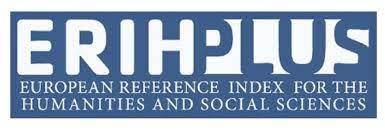ASPECTS OF POLITICAL THEOLOGY OF EUSEBIUS PAMPHILI (CAESAREA)
DOI:
https://doi.org/10.52340/jd.2021.12.01Keywords:
Eusebius of Caesarea, Constantine, Political Theology, Roman Empire, Christian HistoriographyAbstract
Eusebius of Caesarea (Eusebius Pamphili) is an important landmark of Christian historiography. His writings (Historia Ecclesiastica,
De vita Constantini and De laudibus Constantini) are invaluable for those studying the reign of Constantine. Moreover, De vita Constantini is the main source for understanding the religious policy of Constantine.
The era of Constantine posed a challenge to the Church to redefine herself in association with Christianized emperor. Constantine for Eusebius embodied unity and universalism both in political and ecclesiastical spheres. For Eusebius, it was a historical necessity that the Roman Empire and the Church cooperate in concord for the sake of humankind.
On the other hand, Eusebius Caesarea has always been an object of scholarly dispute. One question that often arises is - Did Eusebius propagate Constantine’s “political theology”? Aim of this paper is to analyze Eusebius of Ceasarea’s paradigm for relationships between the Church and Empire
Downloads
Downloads
Published
How to Cite
Issue
Section
License
Copyright (c) 2022 გიორგი ლურსმანაშვილი

This work is licensed under a Creative Commons Attribution-ShareAlike 4.0 International License.









